Top Nigerian Figures 2024: Music Video Directors, TG Omori’s Fees, Aliko Dangote
The power of music is undeniable, serving as a universal language that transcends boundaries and evokes deep emotions. In Nigeria, a country deeply immersed in musical culture, several outstanding music video directors have emerged. These creative minds have mastered the art of transforming music into visually stunning masterpieces that resonate with audiences worldwide.
Nigeria’s music scene, spearheaded by artists like Burna Boy, Wizkid, and Tiwa Savage, has witnessed global acclaim. Behind the success of these artists stand exceptional music video directors, individuals with the unique ability to translate the essence of music into captivating visual narratives.
These directors go beyond merely creating videos; they skillfully capture the emotions, energy, and spirit of the music, leaving viewers spellbound. With their impeccable cinematography and creative direction, these directors have produced works of art that connect with people across generations.
The impact of their videos extends beyond the screen, becoming cultural phenomena that shape the music industry. This article delves into the profiles of the top music video directors in Nigeria, exploring their noteworthy works and the profound influence they have had on the industry. Let’s take a closer look at these visionary directors who have left an indelible mark on our hearts with their extraordinary creations.
6. Unlimited LA
Nigerian music video director, Buari Olalekan Oluwasegun, widely known as Unlimited L.A, has established himself as a prominent figure in the industry through collaborations with renowned artists like Olamide, Phyno, and Timaya, spanning across diverse musical genres. His reputation for exceptional work is evident in his selective approach to projects, choosing only those that align with his stringent standards. Reports suggest that the commitment to delivering top-tier work from Unlimited L.A comes with a substantial cost, often exceeding N30 million. His dedication to quality and his artistic vision have solidified his standing in the Nigerian music video directing scene.
5. The Alien
Despite being relatively new to the scene, this video director from Nigeria has quickly captured considerable attention with his promising work. Displaying great potential, he is on track to becoming a prominent figure in the industry. In 2022, he made notable collaborations, teaming up with Kizz Daniel for the “Oshe” video and working alongside BNXN (Buju) on the “Kilometre” remix video with Zinoleesky. His early projects suggest a talent poised for significant contributions to the world of music video directing.
4. Sesan
Renowned Nigerian music video director, widely known as Sesan Ogunro or simply Sesan, currently resides in the United Kingdom. His impressive portfolio includes collaborations with some of the top Afrobeats artists such as Davido, Wizkid, Tiwa Savage, and D’Banj.
Sesan holds the position of Chief Executive Officer at Film Factory South Africa, a Johannesburg-based video production company, and Film Factory Nigeria, located in Lagos. His journey in Afrobeat music video direction began with D’Banj, leading to a successful and award-winning partnership. A pinnacle of their collaboration was the release of the “Oliver Twist” music video on YouTube in 2012.
The “Oliver Twist” video gained widespread recognition, earning nominations for Most Gifted Video of the Year at the Channel O Music Video Awards in 2012 and the World Music Award for Best Video of the Year. Sesan stands as one of Nigeria’s most esteemed directors, extending his collaborations to artists from diverse musical genres, including the Grammy-nominated duo Riton and Kah-Lo.
3. Adasa Cookey
Adasa Rawlinson Cookeygam, professionally known as Adasa Cookey, is a versatile Nigerian figure excelling in various roles, including music video director, cinematographer, commercial director, colorist, and filmmaker. As the Chief Executive Officer of Squareball Media Productions Limited, he not only directs but also plays an executive role.
In 2010, Adasa Cookey transitioned from a customer service representative to follow his passion for video editing and directing. His extensive portfolio includes music videos for esteemed artists like Simi, Adekunle Gold, D’Prince, Don Jazzy, Burna Boy, and Davido, showcasing his versatility and skill in the industry.
2. H2G Filmworks
Olaolu Akorede Olabode Folarin, professionally known as HG2 Filmworks, is a multi-talented individual with Nigerian-American heritage. With roles spanning director of commercial films, creator of music videos, graphic designer, business owner, and cinematographer, HG2 Filmworks has made a significant impact in the entertainment industry.
His impressive portfolio includes music video direction for renowned musicians such as D’banj, Kiss Daniel, Dammy Krane, Reminisce, 9ice, and Skales. The quality of his work is reflected in the nominations his music videos have received at prestigious awards, including recognition at the Soundcity MVP Awards Festival and the 2015 Nigeria Entertainment Awards.
1. TG Omori
At the forefront of the list is Boy Director, also known as ThankGod Omori Jesam. Originally from Cross River State but raised in a middle-class household in Agungi, Lagos State, he embarked on his directing journey at the age of 15, directing plays at his church and high school.
Upon completing his education at the PEFTI Film Institute at the age of 18, he entered the realm of professional video production, making him one of Nigeria’s youngest filmmakers. He gained widespread recognition in 2019 for his creative contributions to numerous acclaimed music videos.
ThankGod Omori Jesam, alternatively referred to as TG Omori or Boy Director, stands out as a prolific director and cinematographer based in Nigeria. His extensive portfolio includes a multitude of music videos, solidifying his position as the most sought-after director in the country. His career is synonymous with music videos that showcase skill and artistry, often rivaling the songs themselves.
TG Omori: Controversial Fees of Nigeria’s Top Music Video Director
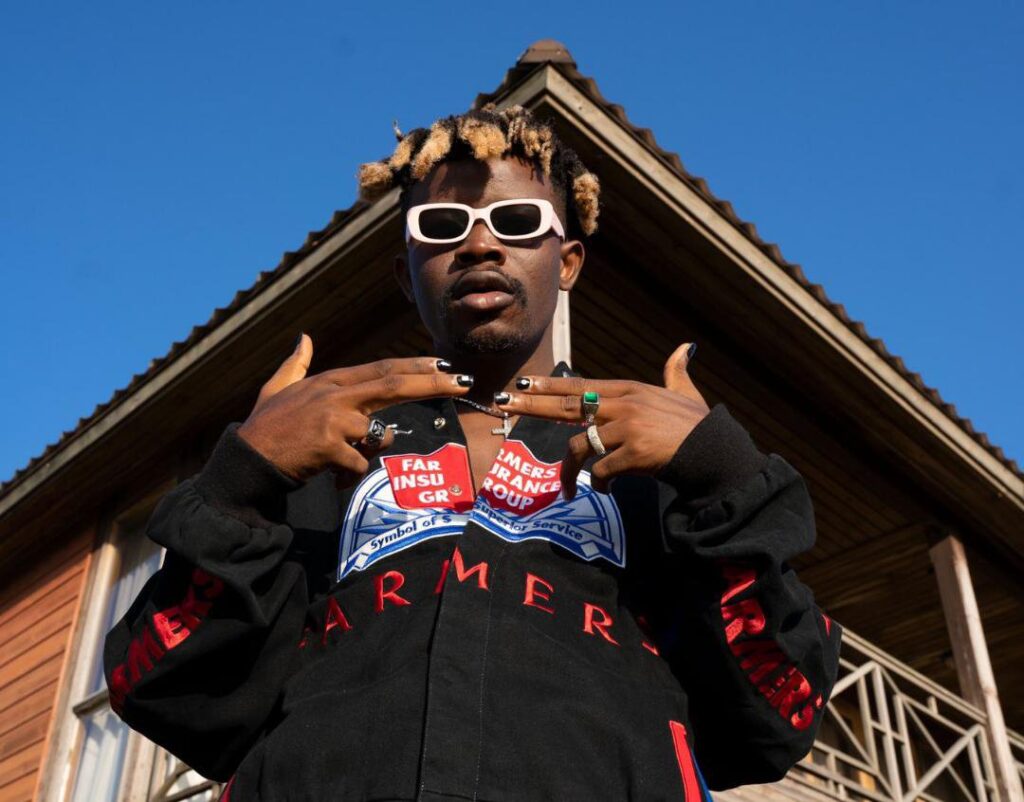
ThankGod Omori Jesam, known professionally as TG Omori or Boy Director, is indeed a Nigerian music video director and cinematographer. TG Omori has made a significant impact in the Nigerian music industry by directing music videos for a diverse range of recording artists. Some of the notable artists he has worked with include Olamide, Wizkid, Burna Boy, Tekno, Kizz Daniel, Fireboy DML, Falz, Timaya, Naira Marley, Asake, and many others.
His work is characterized by creative visual storytelling and unique cinematography, contributing to the success and popularity of the music videos he directs. TG Omori’s ability to capture the essence of each artist’s music in his visuals has earned him recognition and a solid reputation in the Nigerian entertainment scene.
TG OMORI Biography and Career
ThankGod Omori Jesam, known as TG Omori, was born in Agungi, Lagos State, Nigeria, and is a Nigerian citizen of African descent. He hails from River State, Nigeria. TG Omori attended Kuramo College for his secondary school education and later joined the Pencil Film Institute in Lagos State, Nigeria, after completing high school.
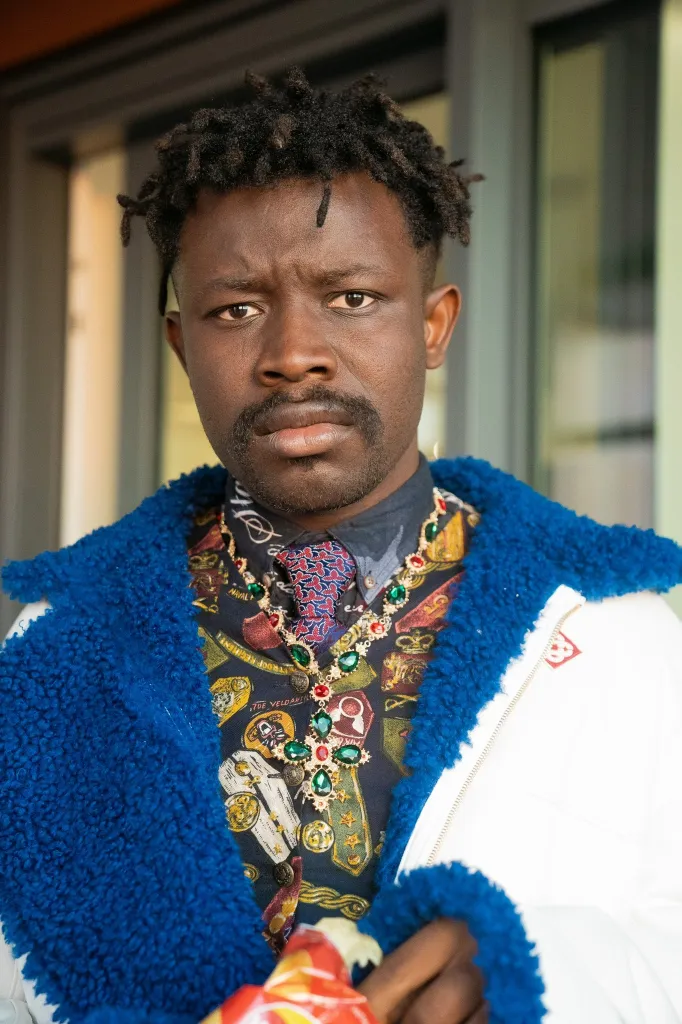
As of May 2023, TG Omori is 27 years old, celebrating his birthday on June 8, born in the year 1995 under the zodiac sign Gemini. His early education and training set the foundation for his career as a prominent cinematographer and music video director.
In 2019, TG Omori gained widespread recognition, contributing to around half of the videos on the summer 2019 charts countdown on platforms like MTV, Soundcity, and Trace. He directed videos for various musicians, including the controversial song “Am I a Yahoo boy” by Naira Marley, “Totori” by Olamide & Wizkid, and “Soapy” by Naira Marley, which won the Viewers Choice award at the 2020 Soundcity MVP Awards Festival. In 2019, he was honored with the Video Director of the Year award at the City People Entertainment Awards and directed two videos that made it to the top 10 most-viewed Nigerian music videos of the year.
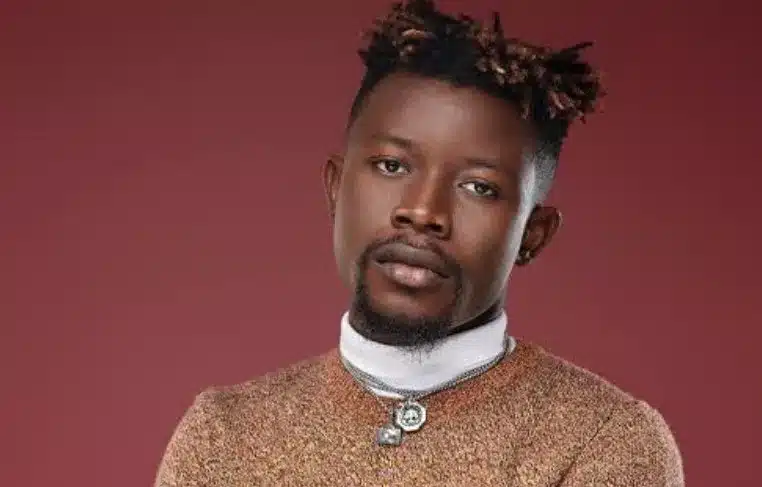
In 2021, TG Omori directed the music video for the North African remix featuring ElGrande Toto, released on November 4, 2021. The video, shot in Lagos, quickly surpassed 34 million views on YouTube within a month of its release, showcasing the director’s continued success in the industry.
TG OMORI Fee Controversy
A shocking revelation was made by the music video director, TG Omori, regarding the music video for Asake’s hit song, Joha. In response to a troll attempting to diminish the quality of his work and reports of his charging clients from $50,000 for a music video production, TG Omori disclosed via his Twitter handle that he charged $165,000 for the Joha music video. This revelation came after controversial singer Portable criticized him for quoting $50,000 to shoot the video for his trending song ‘Apostle.’ Responding to a Twitter troll who questioned the worth of TG Omori’s work, the director defended his pricing by revealing the substantial amount he charged for the production of Asake’s ‘Joha’ video, stating, “Joha video is about $165k. Crying?” TG Omori had previously mentioned in December 2022 that Joha is the most expensive video he has ever shot, and the amount in naira would break a calculator.
Aliko Dangote: Africa’s Richest Man – Net Worth, Business, Family
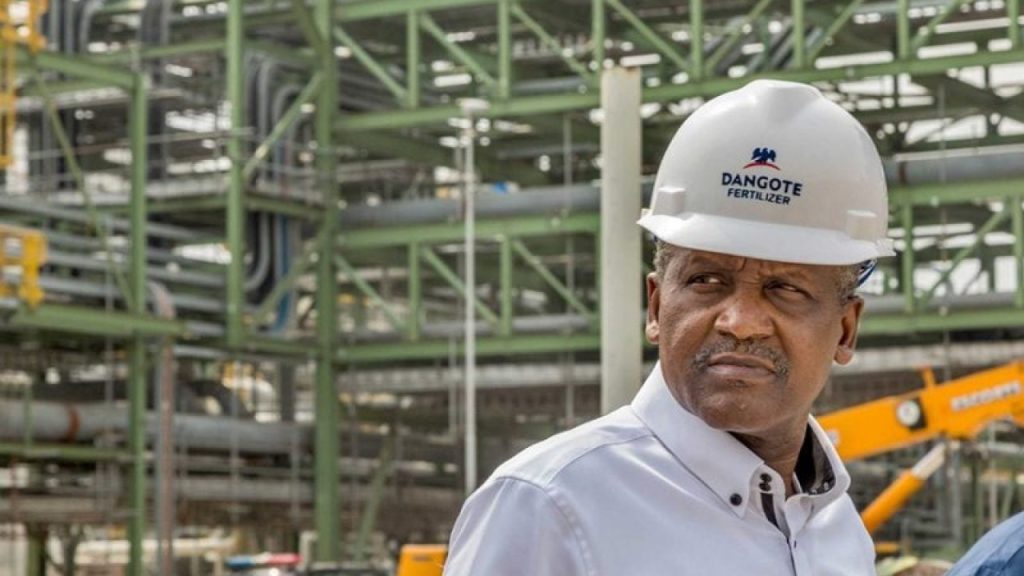
Aliko Dangote, born on April 10, 1957, is a Nigerian entrepreneur and industrialist. Renowned as the founder, chairman, and CEO of the Dangote Group, the largest industrial conglomerate in West Africa, he gained widespread recognition. According to the Bloomberg Billionaires Index in November 2023, Dangote’s estimated net worth stood at $20.7 billion, solidifying his status as the wealthiest individual in Africa, the globe’s richest black person, and the 107th richest person worldwide.
Dangote Family Life
| Personal Stats | |
|---|---|
| Age | 66 |
| Source of Wealth | Cement, sugar, Self Made |
| Residence | Lagos, Nigeria |
| Citizenship | Nigeria |
| Marital Status | Divorced |
| Children | 3 |
| Education | Bachelor of Arts/Science, Al-Azhar University |
Aliko Dangote was born into a prosperous Hausa Muslim family on April 10, 1957, in Kano, which was a part of British Nigeria at that time. His mother, Mariya Sanusi Dantata, was the daughter of the businessman Sanusi Dantata, and his father, Mohammed Dangote, had business ties with Dantata. Through his mother, he is the great-grandson of Alhassan Dantata, who held the title of the richest person in West Africa until his passing in 1955. Aliko Dangote’s brother, Sani (1959/60–2021), was also engaged in business.
Dangote received his early education at the Sheikh Ali Kumasi Madrasa, followed by Capital High School in Kano. In 1978, he graduated from the Government College, Birnin Kudu. Subsequently, he obtained a bachelor’s degree in business studies and administration from Al-Azhar University in Cairo.
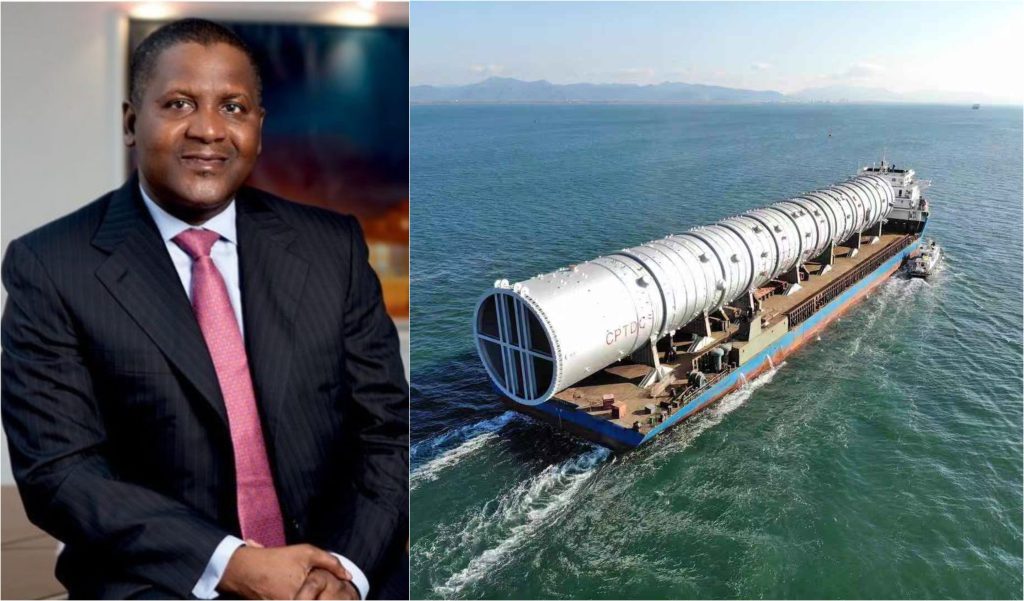
Dangote Business Career
Founded in 1981, the Dangote Group began as a small trading firm but has since grown into a multi-billion-dollar conglomerate with operations in Nigeria and other African countries. The group’s interests span several sectors, including:
- Cement: Dangote Cement is the largest cement producer in Africa, with plants in ten African countries.
- Sugar: Dangote Sugar Refinery is the largest sugar refinery in Africa and the second largest in the world.
- Salt: Dangote Salt is a major player in the salt industry in Nigeria.
- Flour: Dangote Flour Mills is a leading flour producer in Nigeria.
- Other Sectors: The group also has interests in real estate, telecommunications, steel, oil and gas, and packaging.
Key Projects
- Dangote Refinery: One of Dangote’s most ambitious projects, the Dangote Refinery in Lagos, is set to be one of the world’s largest oil refineries, aiming to reduce Nigeria’s dependence on imported refined petroleum products.
- Dangote Fertilizer Plant: Located in Lekki, Lagos State, this plant is one of the largest fertilizer plants in the world, helping to boost Nigeria’s agricultural sector.
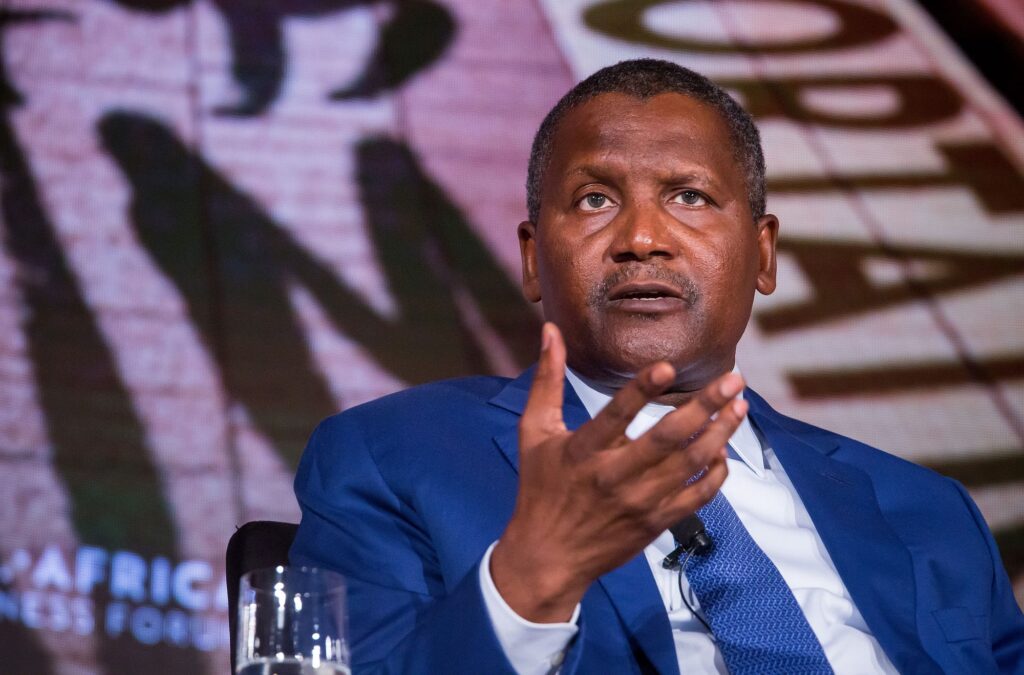
The Dangote Group originated as a modest trading firm in 1977, the same year Aliko Dangote relocated to Lagos to spearhead the company’s expansion. Armed with a ₦500,000 loan from his uncle, Dangote initiated trading activities in various commodities, such as bagged cement, rice, and sugar.
Over the years, the Dangote Group has evolved into one of the largest conglomerates in Africa, boasting international operations in Benin, Ghana, Zambia, and Togo. Transitioning from a trading entity, the group has become Nigeria’s largest industrial conglomerate, housing divisions like Dangote Sugar Refinery, Dangote Cement, and Dangote Flour. Notably, the Dangote Group dominates Nigeria’s sugar market, with its refinery business serving as the primary supplier to soft drink companies, breweries, and confectioners, capturing 70 percent of the market. The conglomerate employs over 11,000 individuals in West Africa.
In a move reflecting its diversification, in July 2012, Dangote secured approval from the Nigerian Ports Authority to lease an abandoned piece of land at the Apapa Port. This led to the establishment of the largest refinery in Africa, producing 800,000 metric tons of sugar annually. The Dangote Group also engages in salt production, flour milling, and is a significant importer of various commodities such as rice, fish, pasta, cement, and fertilizer. The company is involved in the export of cotton, cashew nuts, cocoa, sesame seeds, and ginger to multiple countries. Additionally, it has substantial investments in real estate, banking, transport, textiles, oil, and gas.
In February 2022, Dangote announced the completion of the Peugeot assembling facility in Nigeria through a partnership with Stellantis Group. This marked the establishment of Dangote Peugeot Automobiles Nigeria Limited (DPAN) factory in Kaduna, producing Peugeot models.
On May 22, 2023, in Lekki, Nigeria, Dangote inaugurated the Dangote Refinery, a significant project he personally funded. The refinery, located on a vast 6,180-acre site at the Lekki Free Trade Zone in Lagos State, aims to transform Africa’s largest oil producer into an export hub for petroleum products. Equipped with the world’s longest sub-sea pipeline infrastructure at 1,100 kilometers (680 miles), the refinery plans to export surplus petrol and diesel.

Dangote First Milestone
In 2007, Aliko Dangote achieved the historic milestone of becoming Nigeria’s first billionaire. His financial success continued to soar, with reports suggesting that he added $9.2 billion to his personal wealth in 2013, as per the Bloomberg Billionaires Index. This remarkable increase positioned him as the 30th-richest person globally at that time and solidified his status as the wealthiest individual in Africa.
However, in 2015, the HSBC leaks brought to light that Dangote was a client of HSBC and held assets in a tax haven located in the British Virgin Islands.
As of June 2022, Aliko Dangote maintains his position as the wealthiest person in Africa, boasting an estimated net worth of US$20 billion.
Dangote Networth
Real Time Net Worth ($20.7B)
- Aliko Dangote, Africa’s richest person, founded and chairs Dangote Cement, the continent’s largest cement producer.
- He owns 85% of publicly-traded Dangote Cement through a holding company.
- Dangote Cement has the capacity to produce 48.6 million metric tons annually and has operations in 10 countries across Africa.
- After many years in development, Dangote’s fertilizer plant in Nigeria began operations in March 2022.
- Dangote Refinery began construction in 2016 and is expected to begin refining operations in 2024.
Family
Aliko Dangote has kept much of his personal life private. He has three daughters: Mariya Dangote, Fatimah Dangote, and Fatimah Abubakar. His daughters are involved in various business ventures and philanthropic activities. Dangote is known for his close-knit family and places a strong emphasis on family values.
Philanthropy
Dangote is a notable philanthropist. He established the Aliko Dangote Foundation in 1994, which focuses on health, education, and economic empowerment. The foundation has funded numerous initiatives, including:
- Health: Supporting efforts to eradicate polio, malaria, and other diseases in Africa.
- Education: Providing scholarships and funding for educational institutions.
- Economic Empowerment: Supporting micro and small enterprises, particularly those run by women and youth.
Controversies
Despite his success, Dangote has faced several controversies:
- Monopolistic Practices: Dangote has been accused of using his influence to maintain a monopoly in various industries, particularly in cement. Critics argue that his dominance stifles competition and innovation.
- Regulatory Issues: His businesses have occasionally faced regulatory scrutiny, including accusations of violating environmental regulations and labor laws.
- Political Connections: Dangote’s close ties with political figures in Nigeria have sparked debates about the influence of business magnates on politics and policy-making in the country.
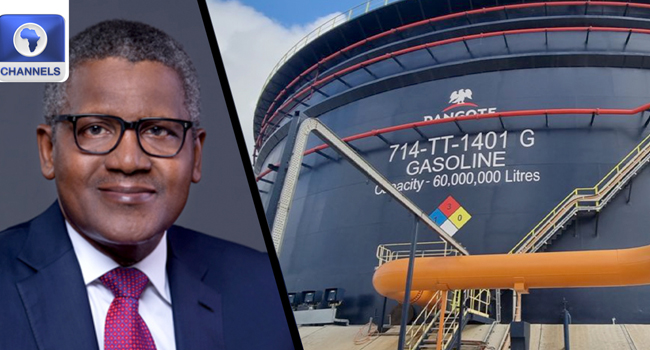
Recognition and Awards
Dangote’s contributions to business and philanthropy have earned him numerous accolades:
- Forbes Africa Person of the Year (2014)
- Time 100 Most Influential People in the World (2014)
- Grand Commander of the Order of the Niger (GCON) – one of Nigeria’s highest honors.
Conclusion
Aliko Dangote’s journey from a small trader to Africa’s richest man is a remarkable story of entrepreneurship, resilience, and strategic vision. While his business practices and political connections have been subjects of controversy, his impact on the Nigerian and African economies is undeniable. Through his business acumen and philanthropic efforts, Dangote continues to play a significant role in shaping the economic landscape of Africa.
Read More Top Universities and Fashion Brands in Nigeria 2024: Featuring Mai Atafo, Fashion Icon
